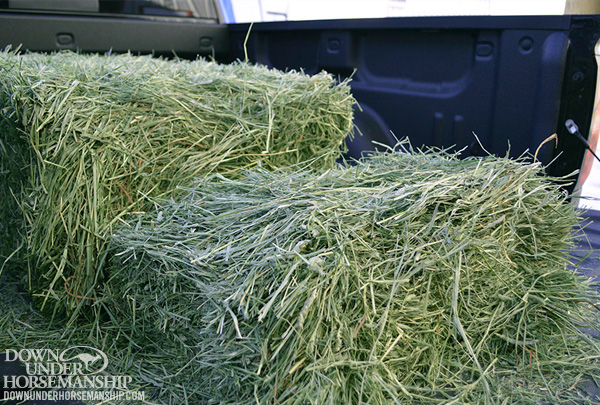Misconceptions in Selecting Forage for Horses – Dust/Mold/Foreign Material

Dr. Stephen Duren, Performance Horse Nutrition and Standlee Premium Western Forage® Nutritional Consultants
Forage in the form of hay or pasture is the primary ingredient in the diet for most horses. Horses can consume many different varieties of high-quality forage, both alfalfa and grasses, without digestive upset, provided the horse is properly adapted to the forage.
Dust in forage can originate from dirt acquired in the harvesting process or it actually may be spores from mold. Foreign material in forage is loosely defined as anything that can’t outrun the baler and may include: paper, plastic, aluminum cans, dead rodents or snakes.
Misconception: I have heard many times that horses are too smart to eat dust, mold or foreign material.
Fact: Unfortunately, horses will consume dusty or moldy forage, particularly if they don’t have a choice. They will also eat paper or plastic due to boredom. They also have been known to accidently consume hay contaminated with dead animals. Horses can become sick, injured or even die from eating these materials.
Solution: Horse owners are responsible for selecting forage for horses that is free of dust/mold and foreign material. We should always carefully inspect the forage at the time of purchase, but also re-inspect the forage as it is being fed to ensure the hay is not contaminated.
